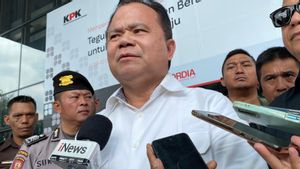YOGYAKARTA - Titel owner and founder are often found in the company or business structure. Many people consider these two statuses to have the same position as owners of a business. Although both positions are important in business, there are differences in founders and owners.
Not a few businessmen have embedded the status of owners or founders in their social media bio. For example, owner Belle Studio, founder of My Skill, owner of Humby Kids, and others. However, there are still many people who misunderstand the position of owners and founders in the business.
Both the owner, founder, and CEO positions seem almost the same and are seen as having similar responsibilities. In fact, there are several different owners and founders who need to be understood, both in terms of their roles and duties in running a business.
For people who are involved in the business world, they may be familiar in distinguishing the positions of owners and founders. But among ordinary people, these two terms sometimes confuse.
Maybe you are building a new business and are still confused about calling yourself a owner or founder. The position of the owner and founder can be occupied by the same person. However, these two positions can also be filled by two different people.
Let's first understand what owners and founders are to make it easier to distinguish their positions in business ownership:
Owners are individuals or groups that have a business. The word owner comes from English "own", which means owning and the word "er" which shows the subject. So the owner can be interpreted as a business owner.
In accordance with its understanding, owners are individuals or parties who invest funds in business. This position can be held by individuals or groups. Owners are often referred to as owners' businesses or company owners, meaning they are owners of the companies or businesses they run.
On the other hand, the founder comes from the word English "found" which means finding. With the addition of an "-er" which means it becomes a "inventor". So the founder is defined as an individual who finds or sparked the idea of the business. This is the main difference between owner and founder.
The founder's position is usually held by one person. If there are other individuals who contribute to business establishment, they are called co-founders. Co-founders are someone who also provides ideas and contributes to building the business.
SEE ALSO:
As a business owner, the owner has full control to determine business-related policies and decisions. A owner holds full ownership rights or the largest portion. Owners also have the authority to make regulations, plan business strategies, and lead the company. Meanwhile, founders are individuals who find or spark business ideas.
In order to better understand and identify each other's roles, here are the differences between owners and founders that you need to know.
Based on its ownership status, the owner's position in business is not permanent. Some individuals can become owners because of their share ownership rights, so that the owner's position can change hands depending on who owns the largest shares and in accordance with the existing contracts.
This is different from the founder, whose ownership status has not changed because he was the one who founded the business. So even though business ownership changes hands, the status of the founder remains attached. Even if the business goes bankrupt, the title founder still applies.
In terms of task, the difference between owner and founder is also clear. The founder is tasked with regulating the preparation of administration and legality of business. At this stage, the owner may not have joined because the legality process has not been completed.
Meanwhile, owners have a bigger role in business operations, more dominant in terms of company managerials. When businesses already have owners, usually the founder's job is no longer too heavy.
That's a review of the differences in owners and founders. In a business or company, these two positions have clear differences in terms of status and responsibilities in running a business. Also read the differences of solopreneurs and entrepreneurs in running a business.
Stay up to date with the latest domestic and other overseas news on VOI. We present the latest and updated information nationally and internationally.
The English, Chinese, Japanese, Arabic, and French versions are automatically generated by the AI. So there may still be inaccuracies in translating, please always see Indonesian as our main language. (system supported by DigitalSiber.id)

















